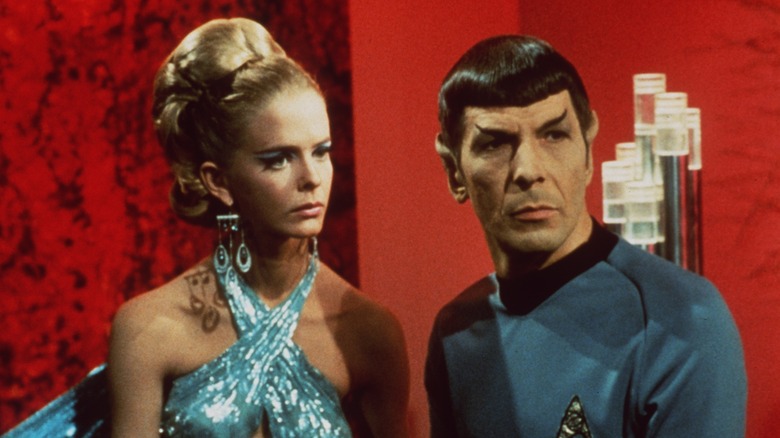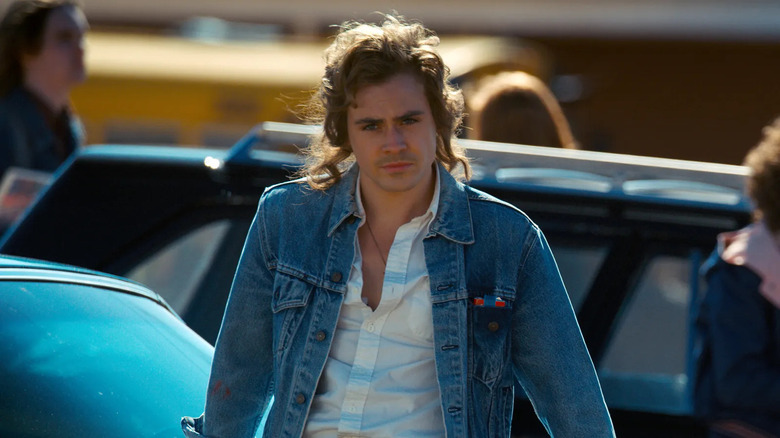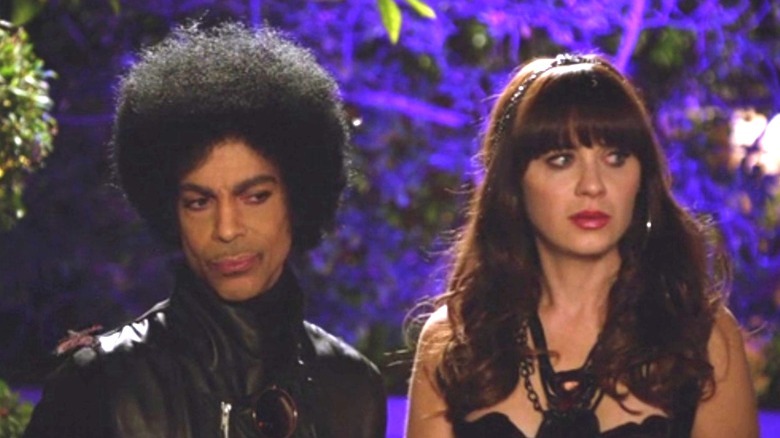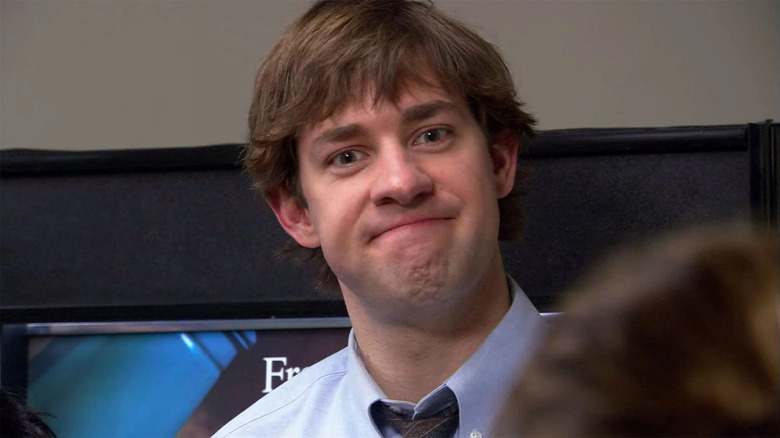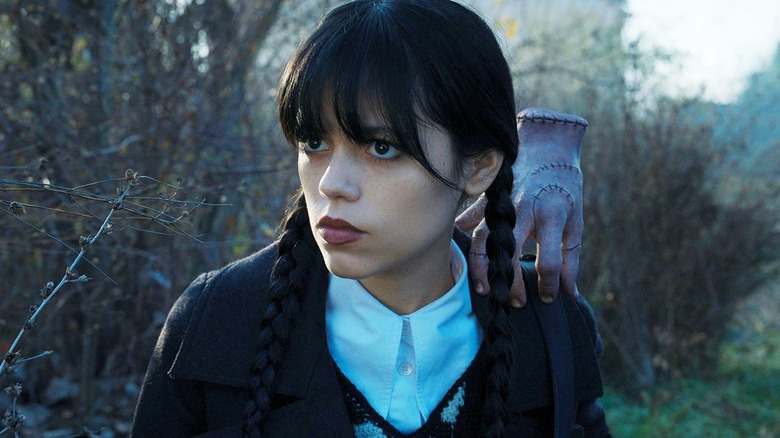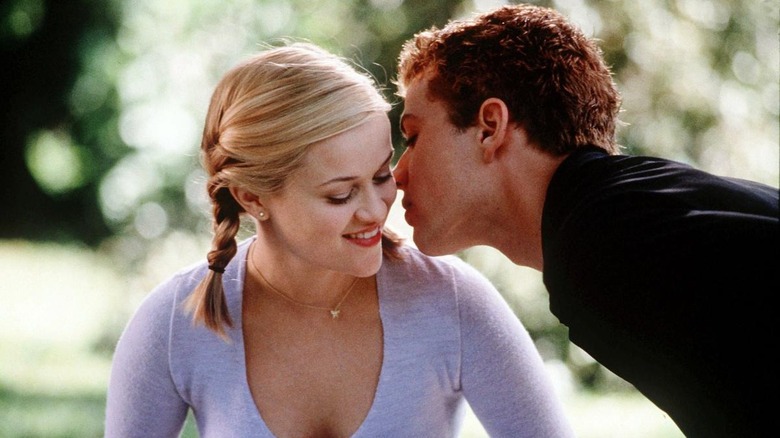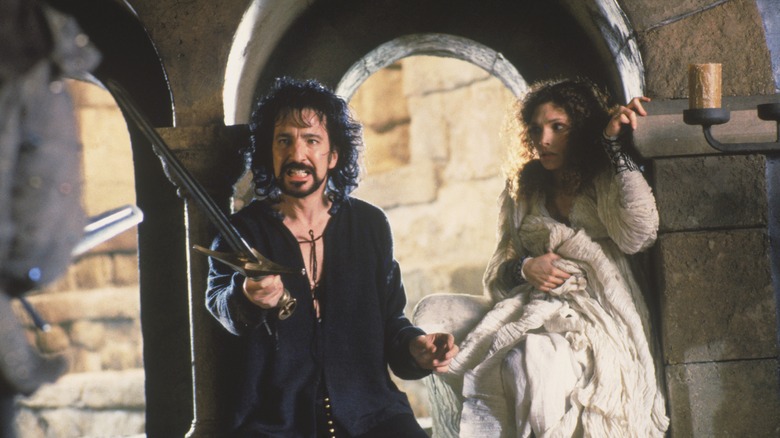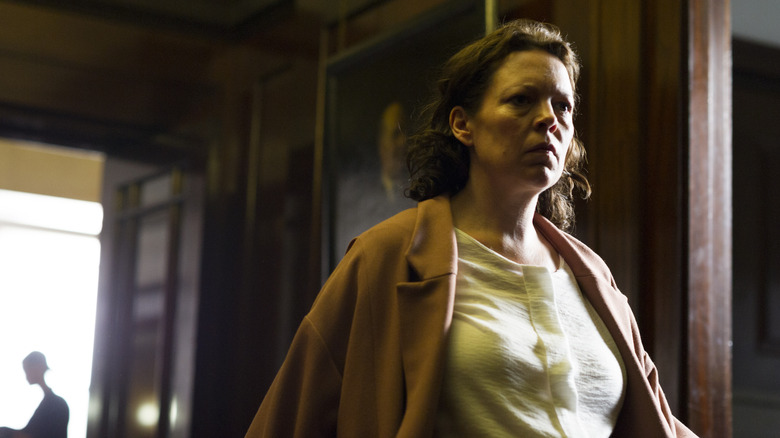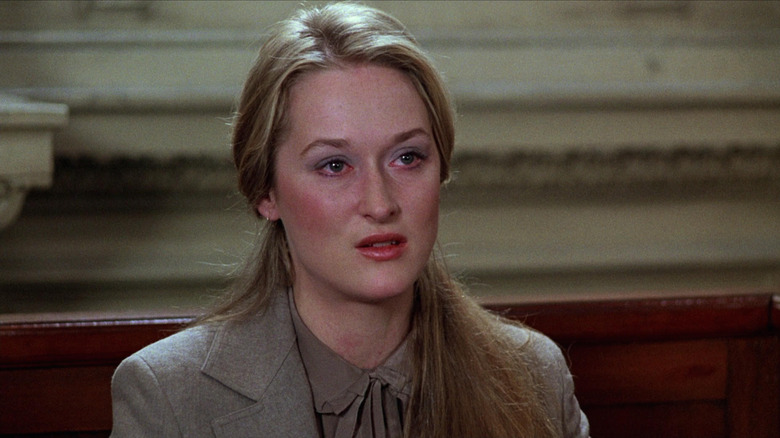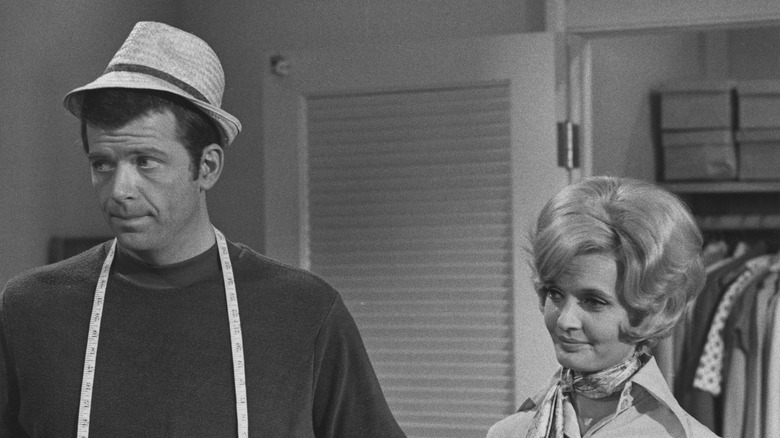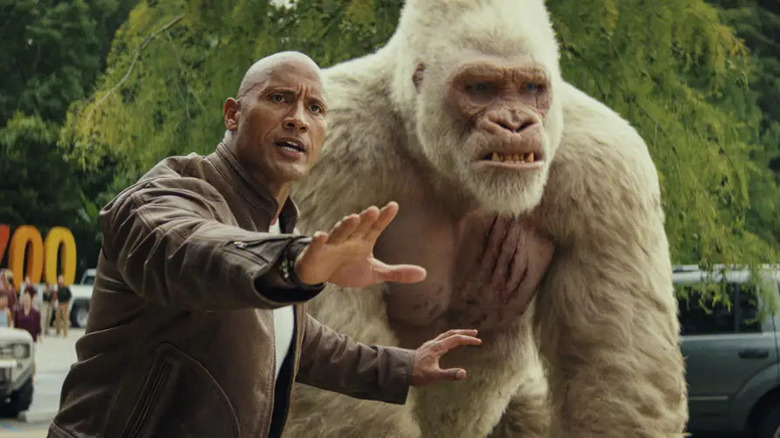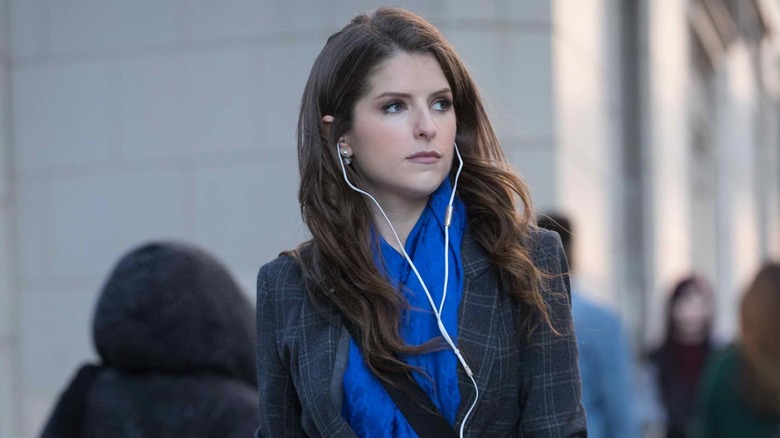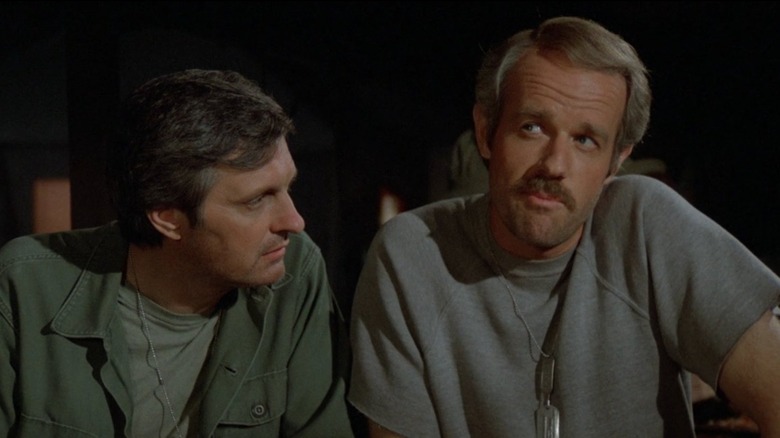15 Actors Who Insisted On Changing The Script
A good actor knows how to read a script, but a great actor can improvise. We think there's a probably a saying that goes something like that. Regardless, it's true that many of cinema's greatest and most iconic moments have been ad-libbed by the actors. In a related vein, many great TV and film scripts have been changed due to the talent involved.
Sometimes actors go too far and let their egos get in the way, but oftentimes they just want to make something better. Keeping in that line of thinking, directors and script supervisors are often receptive to ideas from the talent. From stars who convinced the filmmakers to change their characters to the absurd demands of the ultra-famous, actors insist on changing the script all the time. Often, they will get what they want. In all of these instances, the actors in question lobbied so hard for their specific idea or character that the changes were made. The significance of these adjustments ranges from iconic pop culture moments to Hollywood endings to unimportant lines in TV episodes we forgot decades ago.
Leonard Nimoy - Star Trek
The original "Star Trek" was a groundbreaking sci-fi series for numerous reasons, not least of all being the creation of Vulcans. The Vulcan salute has been absorbed as a piece of popular culture beyond the reach of Trekkies. This began with the first Vulcan we saw, Spock, portrayed iconically by Leonard Nimoy. Nimoy brought the idea of the Vulcan salute to "Star Trek," and he also created one of the most enduring moves in the history of the alien race.
The Vulcan pinch that Spock first pulls out in "Star Trek: The Original Series" was actually an invention of the actor's imagination. Initially, according to the CBC, a script for an early episode had Spock knocking out an enemy with the butt of his phaser, but the actor insisted this method was too archaic and western. As an alien alternative, Nimoy devised the Vulcan nerve pinch. This powerful maneuver went over so well with audiences and producers that it wound up being a recurring part of the character, and as time went on, "Star Trek" lore.
Dacre Montgomery - Stranger Things
When Dacre Montgomery's Billy was added to the cast of "Stranger Things," the character was meant to be more of a one-dimensional bully who goes the route of a villain. Billy's arc on the second and third seasons of the Netflix hit ultimately went this way, but he wound up being a much more sympathetic character thanks to the actor's input. Changes occurred during production of "Stranger Things" that led Montgomery to work closely with the Duffer brothers on the characterization of Max's (Sadie Sink) older brother.
According to a Vulture interview, in Season 2 of "Stranger Things," Montgomery requested extra texture be added to explain Billy's cruelty and humanize him. Thus, the abusive father backstory was born. In the third season, Montgomery pitched the Duffers with the idea of showing what happened between Billy and his biological mother. This heartbreaking and intense sequence where we see Billy's memories of his mother resulted from the actor's changes to the character. Family trauma is at the core of "Stranger Things," so these bits of characterization fit the universe sublimely.
Prince - New Girl
If you are a "New Girl" devotee, you might recall the episode when the crew gets invited to a party thrown by none other than pop icon Prince for Season 3, Episode 14. You might remember the musician's cameo on that episode, but what you won't remember are scenes featuring Khloé Kardashian and Kris Jenner. Because they were never in the episode. After being filmed, any inclusion of the Kardashians and their crew was cut from the final product at the request of Prince.
The popstar was not a huge fan of the Kardashian clan after the infamous moment when Prince kicked Kim off the stage at Madison Square Garden, so his objection to sharing scenes with them shouldn't come as any shock. Prince was reportedly running the show on set that day and didn't think the Kardashians belonged anywhere near a Prince party. The pop star made it clear they would never be invited to a Prince party and refused to let the fact that "New Girl" is fiction send any messages to the contrary.
John Krasinski - The Office
John Krasinski and Jenna Fischer have as much on-screen chemistry as any TV couple possibly could. Even into the later seasons of "The Office," when the writers were trying to inject unnatural conflict into the relationship to keep the series afloat, it was the actors who kept the ship together. The prime example is this Jim and Pam plot point that John Krasinski outright refused to film, changing the script before letting production move forward.
Apparently, in a season eight storyline, Jim was supposed to cheat on Pam with her replacement at Dunder Mifflin, Cathy (Lindsey Broad). Krasinski put his foot down and took his issues with the scene straight to "The Office" creator Greg Daniels. Krasinski felt that this would be a bridge too far for the character, specifically feeling like the audience would never forgive the show or let Jim come back from that decision. Ultimately, the showrunners appealed to reason and decided to drop this detail from the episode.
Jenna Ortega - Wednesday
Young breakout actress Jenna Ortega became the face of Netflix when the "Addams Family" spin-off show "Wednesday" became a smash hit in 2022. According to the star herself, though, she wasn't very easy to work with and demanded a good deal of changes to her lines and Wednesday's characterization.
During an appearance on the Armchair Expert podcast, Ortega dished about the changes she made to the script and how she went about them unprofessionally, at least from her perspective. The actress immediately became protective of the character and began attempts to make the Wednesday she was playing more three-dimensional. This ranged from sit-downs with the script supervisor and writers to give her notes and changes to the more erratic changing of lines on the fly during scenes. When it came to script doctoring, Jenna Ortega did it all on "Wednesday," and based on the response to the show, it seems to have worked in everyone's favor.
Reese Witherspoon - Cruel Intentions
Watch "Cruel Intentions" today and you'll find it to be a remarkable time capsule of the turn of the century pop culture. The sexy teen thriller starred Sarah Michelle Gellar and Ryan Phillippe at the height of their powers, as well as a young Reese Witherspoon. And it turns out that none of us would have the cult classic we have today without Witherspoon, as it was her contributions that made the largest changes to the film's story.
In fact, Reese Witherspoon was considering not even taking the role when she was first offered it, due to the shallowness of her character Annette. According to an oral history of the film for Entertainment Weekly, Witherspoon found Annette too demure and an example of an increasingly concerning type of woman written by a man. Instead of rejecting the role though, the actress sat down with writer-director Roger Kumble for a week to rewrite the character's dialogue. Even Kumble admits that Witherspoon's strength as a writer was a huge part of what made the movie a success.
Alan Rickman - Robin Hood: Prince of Thieves
While its reputation does not discolor it too much today, there was a time when Kevin Costner's "Robin Hood: Prince of Thieves" was apparently a much worse movie. That is, before the Shakespearean and all-time great character actor Alan Rickman got his hands on the script. "Prince of Thieves" wasn't a big critical hit, but Rickman ended up winning a BAFTA for his role as the Sheriff of Nottingham. As it turns out, Rickman ended up recruiting his writer friends to help him rework large chunks of the script to make the dialogue satisfactory.
When Rickman first got the script for "Prince of Thieves," he turned to his friends Ruby Wax and Peter Barnes in disgust. The two were amused and helped the actor edit his lines — edits which he eventually turned over to the film's director, Kevin Reynolds. The changes were apparently happily accepted and a BAFTA-winning character was born in Rickman's Sheriff of Nottingham.
Olivia Colman - The Night Manager
You may know Olivia Colman from her performance in "The Favourite" or Netflix's popular series "The Crown." However, you may not know that one of Colman's best performances was on the BBC miniseries "The Night Manager." The Emmy-award-winning miniseries starred Tom Hiddleston opposite a pregnant Colman. And that last part wasn't in the script.
Colman didn't let pregnancy slow her down or impact the shoot. Instead, the script changed around her. Now that's a testament to talent. The role was already gender-swapped from John Le Carré's original novel when Colman was cast, but the TV adaptation also made her character Burr into a pregnant woman. After talking to director Susanne Bier early in the process, the two decided that the character's pregnancy would work for the script, barring a few changes, additions, and subtractions. Namely, the biggest change was the addition of seats for the pregnant Colman to deliver her monologues while seated.
Meryl Streep - Kramer vs. Kramer
These days, Meryl Streep's name showing up at the Academy Awards ceremony is nothing to bat an eyelash at, but naturally, there was a first time. For the 29-year-old Streep, her 1980 Oscar win for "Kramer vs. Kramer" was a career-defining moment — and one that might not have occurred had she not been so persistent on getting the character right.
As noted in an interview with Vanity Fair, the set of "Kramer vs. Kramer" was a notoriously treacherous battleground between Streep and her co-star Dustin Hoffman. This was especially true when Streep began changing scenes on set. In one instance, she insisted the dramatic sequence in a diner be restructured. In order to both make the narrative flow better and to give her character, Joana, more agency and self-determination, Streep suggested that Joana should explain why she left her family before asking for custody of their son. Director Robert Benton agreed, while Hoffman, according to Vanity Fair, reportedly said, "Meryl, why don't you stop carrying the flag for feminism and just act the scene?" He later improvised his own moment wherein he smashed a glass on a table without letting Streep know, both frightening her and getting glass on her in the process. We'd like to think that kind of behavior wouldn't fly these days.
Although not done on her insistence, but on behalf of the director, Streep's biggest contribution to the "Kramer vs. Kramer" script was in a courtroom scene where she delivers an emotionally devastating monologue. Benton had asked her to write the monologue herself and Streep did, knocking it out of the park and perhaps even winning the Oscar for that very scene.
Robert Reed - The Brady Bunch
Robert Reed doesn't have the best reputation when it comes to his time on "The Brady Bunch." The actor, who played Brady patriarch Mike, was reportedly difficult to work with on the set of the show and would frequently come back from his lunch breaks drunk. As such, this is not a story of a talented actor changing the script to improve a character. No, this dialogue change was pure nitpick, as Reed would often point out things in the scripts that he felt were inaccurate or wrong.
The most notable of these was during a Season 4 episode where Mike was supposed to say a pie smelled like "strawberry heaven." The fact-checker that he was, Reed objected to the line, insisting strawberries supposedly give off no smell while they're being cooked. Despite strawberries definitely having a smell and this even being proven to him by "Brady Bunch" creator Sherwood Schwartz, Reed refused to say the line. In the end, the showrunner compromised with a different line. Reed ended up saying, "I do believe I've died and gone to strawberry heaven," which at the very least is a better line.
Dwayne Johnson - Rampage
Dwayne "The Rock" Johnson is one of the biggest stars in Hollywood and, when he wants, he can really throw his weight around. We aren't just talking about his muscles here, either. Johnson has the star power to change entire scripts, as was the case when he took on the lead in the film adaptation of the video game "Rampage."
This action movie wasn't so much marketed on its tie to an ancient Midway franchise, but the connection between Johnson's charismatic lead Davis Okoye, and his CGI gorilla best buddy, George (played in motion capture by Jason Lilies). In fact, after reading the script the first time, Johnson loved George so much that he got extremely ticked off when George originally died at the end. As he recalled to Rolling Stone, The Rock was so adamant about changing the bummer ending to a happy one that he convinced the producers to change it in a meeting. Johnson gave them an ultimatum, claiming he would walk if the ending of "Rampage" wasn't changed. And so it was done.
Anna Kendrick - Pitch Perfect 3
When it comes to being a boss behind the scenes, Anna Kendrick got her chance to flex her muscles on the set of "Pitch Perfect 3."
Kendrick said no to an entire romance subplot that was going to be written into the musical sequel. Originally, Kendrick's Beca was supposed to fall for a music exec named Theo (Guy Burnett). The actress took major offense to this storyline, calling it "[effing] problematic" because the characters already have an existing professional history, and Kendrick didn't want to give the wrong impression about what is acceptable in the music industry. She later had to say no again when the producers of "Pitch Perfect 3" wanted to film an alternate ending where the characters kissed.
Other comments in that same interview from Kendrick give the impression that she was ultimately pretty unhappy with the direction her character was taken in the final movie of the "Pitch Perfect" trilogy. Not so perfect after all.
Mike Farrell - M*A*S*H
"M*A*S*H" is one of the most important shows of its era, bringing wartime drama to the sitcom format in one of the most unlikely successes of TV history. In the program, which ran from 1975 until 1983, Mike Farrell played Captain B.J. Hunnicutt, one of the primary characters from Season 4 of "M*A*S*H" onward. On a seventh season shoot, Farrell insisted that the script be changed in a scene that the actor deemed as medically unethical.
In the episode entitled "Preventive Medicine," Hawkeye (Alan Alda) and B.J. are tasked with stopping a reckless Lieutenant Colonel in the only way they can, by placing him in a hospital bed with some excuse. They come to the conclusion, based on a real-life military story, of giving the man an unnecessary appendectomy to remove him from the line of duty. Farrell, however, didn't think this was something B.J. would go through with and ultimately convinced the show's writers to change their minds.
In the end, the drama is accentuated by the decision Hawkeye makes in spite of his friend's position.

